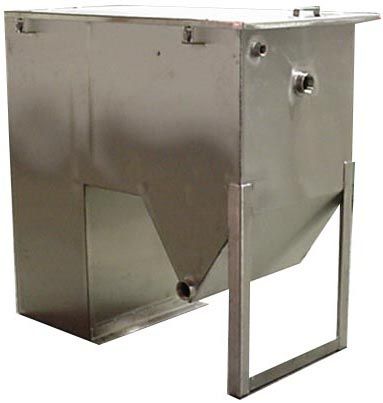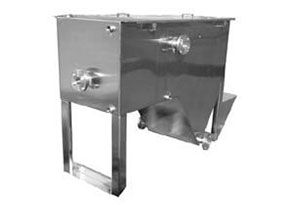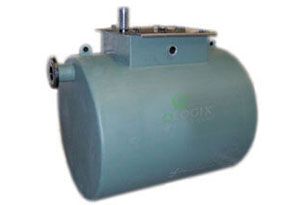In modern industrial and commercial operations, managing wastewater effectively is not just good practice—it's a legal and environmental imperative. Among the most critical pieces of equipment for achieving this is the oil water separator. These ingenious devices are designed to efficiently remove oils, fuels, greases, and other hydrocarbon contaminants from various water streams, preventing pollution and ensuring compliance with stringent environmental regulations. Understanding their diverse applications is key to maintaining operational integrity and environmental stewardship.
What is an Oil Water Separator?
At its core, an oil water separator is a specialized filtration system that leverages the difference in specific gravity between oil and water to separate them. Using principles like gravity separation (API separators, parallel plate separators), coalescence, or even advanced membrane technologies, these units allow oil to rise and collect at the surface while cleaner water flows out, ready for further treatment or safe discharge.
Top Uses of Commercial Oil Water Separators

Commercial oil water separators are indispensable across a multitude of sectors, addressing unique challenges posed by oil-contaminated water.
1. Industrial Wastewater Treatment
Manufacturing facilities, power plants, chemical processing units, and metalworking shops often generate wastewater contaminated with cutting fluids, lubricants, and hydraulic oils. An oil water separator is the first line of defense, efficiently removing these hydrocarbons before the water undergoes further treatment or is discharged. This is crucial for meeting environmental regulations and protecting public waterways.
2. Automotive and Transportation Industry
Garages, car washes, truck stops, vehicle maintenance depots, and heavy equipment repair shops are prime locations for oil contamination. Washdown water and spills frequently contain oils, greases, and fuel. Implementing a commercial oil water separator here prevents the discharge of these pollutants into sewer systems, safeguarding local infrastructure and preventing costly fines.
3. Marine and Shipping Operations
Bilge water from ships, boats, and offshore platforms is notoriously contaminated with fuel, lubricants, and hydraulic fluids. Oil water separators are absolutely essential onboard vessels to treat this bilge water before it's discharged into the ocean. Adherence to international conventions like MARPOL is strictly enforced, making these separators non-negotiable for maritime operations.
4. Oil and Gas Industry
From drilling sites to refineries and production facilities, the oil and gas industry handles vast quantities of water that become contaminated with crude oil and hydrocarbons. Separators are critical for treating produced water (water brought up during oil/gas extraction), preventing environmental damage, and enabling water reuse in certain processes.
5. Food and Beverage Processing
While often associated with industrial oils, commercial oil water separators are also vital in the food and beverage sector. They are used to remove fats, oils, and grease (FOG) from washdown water generated in meat processing, dairy, and food preparation facilities. This prevents FOG buildup in sewer lines, reduces odor issues, and helps comply with municipal discharge limits.
6. Stormwater Management
In urban and industrial areas, stormwater runoff can pick up oil and fuel spills from parking lots, roads, and industrial yards. Installing oil water separators at stormwater drains or retention ponds helps capture these pollutants before they enter natural water bodies, protecting aquatic ecosystems and drinking water sources.
7. Mining Operations
Mining activities often produce large volumes of wastewater containing suspended solids and various contaminants, including oils and greases from machinery. Oil water separators play a role in pretreating this water, making subsequent treatment processes more effective and ensuring the responsible discharge of mine water.
Benefits of Implementing an Oil Water Separator
- • Environmental Protection: Directly prevents the discharge of harmful hydrocarbons into the environment, protecting ecosystems and human health.
- • Regulatory Compliance: Ensures businesses meet stringent local, national, and international environmental regulations, avoiding costly fines and legal repercussions.
- • Cost Savings: Reduces the need for costly off-site waste disposal, minimizes potential fines, and can enable water reuse, leading to lower fresh water consumption.
- • Improved Operational Efficiency: Protects downstream equipment from oil fouling, prolonging the lifespan of pumps, filters, and other treatment components.
Choosing the Right Oil Water Separator
Selecting the appropriate oil water separator depends on factors such as flow rate, the type and concentration of oil, desired effluent quality, and available space. Consulting with an experienced environmental engineering firm or equipment supplier is crucial to ensure the chosen solution meets specific operational and regulatory requirements.
At Ecologix we have been building oil water separators for over 20 years. To learn more about the advantages of our oil water separators, contact us today. You can also read more about our oil water separator line here.
Conclusion
Commercial oil water separators are indispensable assets for any business generating oil-contaminated water. Their wide range of applications, from heavy industry to automotive shops and marine vessels, underscores their critical role in modern wastewater management. By investing in the right separation technology, companies can achieve environmental sustainability, ensure regulatory adherence, and realize significant operational and financial benefits. Protect your business and the planet by integrating an effective oil water separation strategy today.

